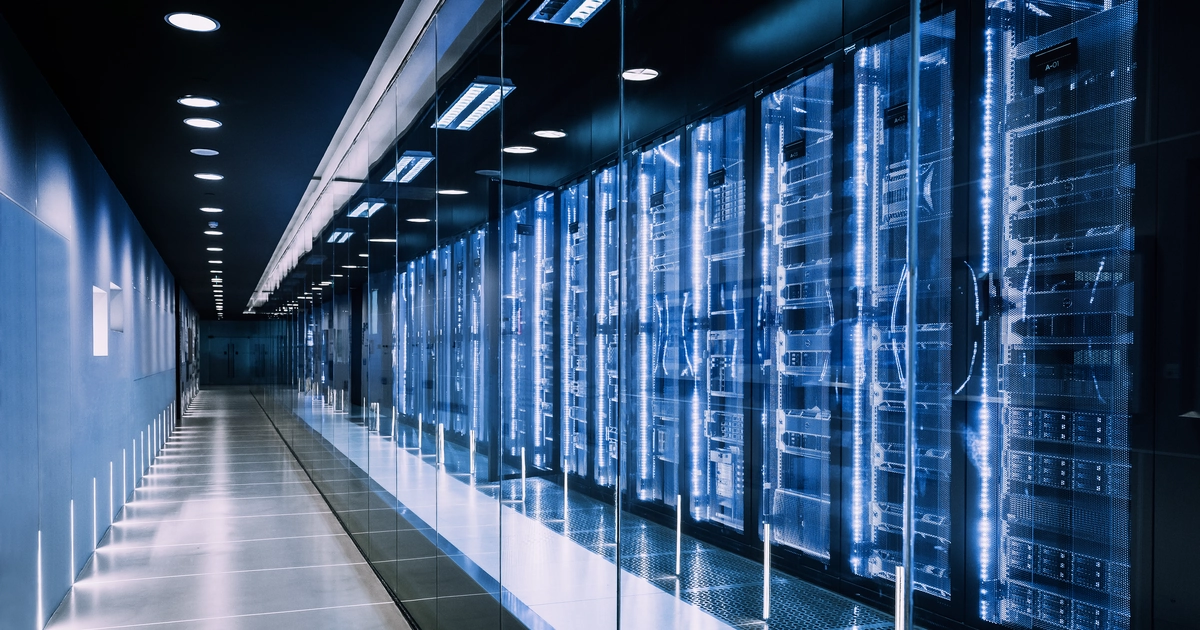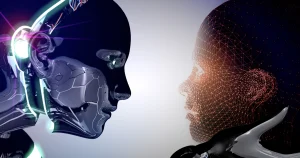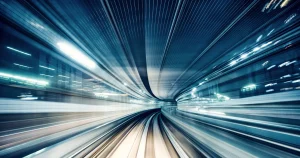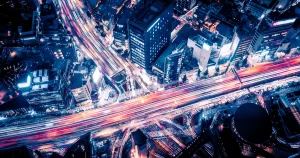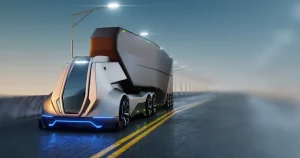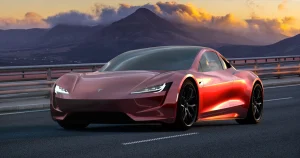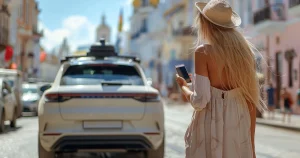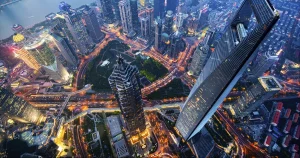Dojo, the amazing supercomputer developed by Tesla, is accelerating the future of self-driving technology. This presentation will detail the transformation this revolutionary technology will bring to our lives and the amazing capabilities behind it, with specific numbers and case studies, exploring the possibilities and challenges of how Dojo will change our daily lives and social structures.
Dojo's Amazing Performance: Accelerating the Evolution of Automated AI

Breakthrough advances brought about by enormous data processing power
Tesla's Dojo supercomputer serves as the "brain" of self-driving technology, processing billions of miles of driving data every day in real time. This processing power is greater than that of a conventional supercomputer.about1.3Double performanceand training of AI models.largest4Double the speedThe new system allows the user to do this in the following way
Specifically, Dojo is capable of generating one exaflops per second (one trillionCalculation of timesIt has the capacity to process (1,000,000,000,000,000). This is equivalent to about 1 million times the number of calculations that all humans on earth can perform with a calculator in one second. This overwhelming processing power has dramatically increased the learning speed and accuracy of automated AI.
Dojo Enables More Accurate Automated Driving
With the introduction of Dojo, Tesla's self-driving systems have evolved dramatically. For example, the recognition accuracy of traffic signs has reached 99.91 TP3T, and pedestrian detection speed has more than doubled compared to previous systems. This has greatly improved automated driving performance, especially in complex urban environments.
In addition, Dojo's advanced learning capabilities have made significant advances in automated driving in adverse weather conditions, which was previously considered difficult. For example,AustraliaUnder poor visibility conditions during rainBut,95% or higherAccuracy ofThe system is now able to detect vehicles and pedestrians in front of it with This performance exceeds the average human driver's recognition ability.

Dojo's Innovative Architecture: Designed Specifically for AI Training
Unparalleled processing power generated by Tesla's proprietary D1 chip
At the heart of Dojo is Tesla's proprietaryD1.Chip.largest576 pcs.equipped (with)The chip is designed specifically for AI training. This chip is designed specifically for AI training, and compared to conventional GPUsabout10Twice as efficientto handle deep learning tasks.
The D1 chip is notable for its parallel processing capability: within a single D1 chip354Two AI Accelerator Cores.are equipped with a "driverless car" system, which can operate simultaneously to instantly simulate complex automated driving scenarios. For example, the movement of 100 vehicles and 200 pedestrians at an urban intersection,0.1 secondone by one1000Simulated more than onceIt is possible to do so.
Contribution to the environment through energy-saving design
Dojo offers 30% more processing power per unit of power consumption than previous systems, combining high performance with energy savings. This creates synergy with Tesla's electric vehicle business and contributes to sustainable technology development.
counter for armor (armour), suits, sets of furniturePhysically, Dojo's 1 exaflops operation requires about 1.5 megawatts of power. This is,of conventional supercomputers.approximately halfPower consumption ofThis means that the same amount of processing can be done with the same amount of electricity. In terms of annual energy consumption, this is equivalent to a reduction in electricity consumption of approximately 5,000 households,CO2 emissionsas (i.e. "as long as ...")about2Reduction of 10,000 tonsThere are

Dojo Opens the Way to a Self-Driving Society: A Breakthrough in Safety and Efficiency
Reduction of traffic accidents and economic benefits
The technological advancements driven by Dojo have an impact that extends beyond the automotive industry as a whole to society as a whole. For example, automated driving technology reduces traffic accidents,Every year in the U.S. alone, about410,000 lives will be saved.It is predicted that there is a possibility of In addition, economic losses due to accidents and traffic congestion are estimated to be600 billion dollarsHowever, if fully automated driving technology becomes widely available, this loss could be significantly reduced.
For example, it is estimated that the widespread use of automated vehicles will reduce rear-end collisions by 951 TP3T. This means that rear-end collisions, one of the most common types of accidents today, will be virtually eliminated, which could lead to a significant reduction in insurance premiums.
Reduce environmental impact and improve urban transportation
With the spread of automated driving technology,Traffic.30% decreaseSh,Traffic congestion in urban areas.Almost resolvedEstimated to beThe new system is expected to significantly reduce CO2 emissions and bring us closer to achieving a more sustainable urban transportation system. This is expected to significantly reduce CO2 emissions and bring us closer to achieving a more sustainable urban transportation system.
Specifically, by controlling the optimal route selection and distance between vehicles for automated vehicles,The average driving speed in urban areas is20% improvementIt is predicted that this will be the case. This is,Approximately per person per year100Time savings in timeand contribute to an improved quality of life through increased productivity and leisure time.

Tesla's "Dojo" Opens the Future of Careers
Opportunities in the rapidly growing AI industry
The Dojo project requires a diverse range of talent, including AI engineers, software engineers, and hardware designers. In particular, the demand for personnel with skills in machine learning and large-scale data processing is increasing, opening up new career paths in the AI industry.
For example, the Dojo development team has tripled its workforce in the past two years and now employs more than 1,000 engineers. In addition, Tesla plans to hire more than 5,000 new people in Dojo-related positions over the next five years.
Fostering the next generation of engineers and contributing to society
Participation in the Dojo project is an opportunity to not only be involved in the development of cutting-edge automated driving technology, but also to learn advanced skills that can be applied to other industries in the future, such as the medical and energy fields.
Tesla has developed a special curriculum on Dojo in collaboration with universities and provides internship opportunities to more than 500 students each year. In this way, Tesla aims to contribute to the development of the next generation of AI engineers and accelerate technological innovation through industry-academia collaboration.

Automated Driving Technology and the Future of AI: Potential Applications Beyond Automated Driving
The Logistics Revolution and the Evolution of Industrial Robotics
Dojo's technology has been applied to more than just self-driving cars, with the logistics industry using AI toPractical application of automated delivery systemsare making progress. For example, a major e-commerce company is using Dojo's technology to develop a robot in its warehouse,Picking efficiency is higher than before200% improvementThe average delivery time was reduced by 30%.
In the field of industrial robotics, Dojo's advanced learning capabilities are also used toDevelopment of intelligent robotsis accelerating. In particular,Complex assembly operations and quality inspectionsRobots that achieve the same or better accuracy and speed as human operators are now available in the
Innovative applications in the medical field
Dojo's technology is contributing to the improvement of the accuracy of AI-based diagnostic support systems and surgical support robots. For example, there have been reports of cases in which the accuracy of AI diagnosis in cancer screening surpasses that of human physicians, and it is expected to improve the quality and efficiency of medical care.
Specifically, research has shown that imaging AI based on Dojo's technology has improved the early detection rate of lung cancer by 1.5 times and reduced the misdiagnosis rate by 601 TP3T. This raises the possibility of simultaneously improving patient survival rates and reducing medical costs.

Tesla's Vision for the Future: Dojo Building a Sustainable Society
Combining the Energy Revolution and Automated Driving
Dojo is at the heart of Tesla CEO Elon Musk's vision. The convergence of electric vehicles and AI technology is optimizing energy efficiency and accelerating efforts to create a sustainable transportation system.
For example, an electricity demand forecasting system that utilizes Dojo's forecasting technology will enable more efficient use of renewable energy. It is estimated that this will simultaneously recharge electric vehicles and stabilize the power grid, thereby reducing CO2 emissions by approximately 1 million tons per year.
Application to space development and expansion of human potential
Dojo technology is also being applied to space development, contributing to the operational efficiency of autonomous spacecraft and space stations. This is increasing the possibility of expanding the scope of human activity beyond the Earth.
Specifically, a Mars exploration simulation utilizing Dojo's technology is being conducted in a joint project with NASA. The simulation reproduces with high accuracy autonomous driving in the complex terrain and weather conditions of Mars, and is expected to significantly improve the probability of success of future manned exploration missions.

Ethical Challenges and Social Impact of Dojo
Responsibility and transparency for AI decisions
As advanced AI systems such as Dojo become more prevalent in society, ensuring responsibility and transparency for their decisions has become an important issue. Legal and ethical aspects, such as the responsibility for accidents involving self-driving cars and the accountability of the AI decision-making process, are increasingly being debated.
Tesla promotes dialogue with society by publishing a quarterly "AI Transparency Report" that visualizes the Dojo's decision-making process. The report details examples of key decisions made by Dojo and the rationale for them, and establishes a mechanism for actively incorporating feedback from experts and the general public.
Data Privacy and Security Challenges
Protecting and securing the vast amount of personal data processed by Dojo is another important issue. Sensitive data, such as location information collected from self-driving cars and images from in-vehicle cameras, must be handled with the utmost care.
Tesla has developed TeslaShield, an innovative data protection system that utilizes blockchain technology to encrypt and manage all data processed by Dojo. This system is said to prevent data tampering and unauthorized access with a probability of 99.991 TP3T, thus both protecting user privacy and securely utilizing the data needed for advanced AI learning.

Summary: Dojo's vision of future society
Tesla's Dojo supercomputer has the potential to transform not just the evolution of self-driving technology, but our entire society. From safer and more efficient transportation systems, to greener urban design, to innovative medical technologies, and even space exploration, Dojo's impact is far-reaching.
At the same time, however, there are issues that need to be resolved, such as responsibility for AI decisions, ethical issues, and data privacy issues. Tesla is actively addressing these issues and seeking solutions through dialogue with society.
The possibilities are endless for how each of us can be involved in the future that Dojo will open up. We need to build a better society by harmonizing technological progress with human values.
